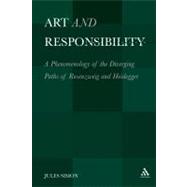
What is included with this book?
| Preface | p. xi |
| Introdution | p. 1 |
| A phenomenology of Diverging paths | p. 1 |
| Philosophies of history | p. 5 |
| Outline of this text | p. 8 |
| Rosenzweig's "turn" to philosophy, art, and the ethical | p. 8 |
| Heidegger's "turn" from politics | p. 11 |
| To art and language | p. 13 |
| Messianism and politics | p. 14 |
| The Mask of Mephistopheles | p. 19 |
| A mathematic-based symbolic logic Theology | p. 23 |
| The god: metaphysics as negation of negative Theology | p. 25 |
| The irrational, empirical starting point | p. 26 |
| Formulating metaphysics | p. 27 |
| Where are the mythical gods of Olympia? | p. 30 |
| The world: metalogic as negation of negative cosmology | p. 32 |
| Doubting Descartes | p. 32 |
| Formulating the metalogic | p. 34 |
| The sleeping, plastic world | p. 36 |
| The human self: meta-ethics as the modern method | p. 38 |
| Kant's soul-less negative psychology | p. 38 |
| Formulating meta-ethics | p. 40 |
| Defiantly tragic heroes | p. 44 |
| Art and the new philosophy | p. 49 |
| Renewing Narrations or Chaos in Creation | p. 57 |
| Rosenzweig's creation story as: "chaos in creation" | p. 58 |
| Theory of art | p. 65 |
| Critique of generation in Idealist aesthetics | p. 65 |
| Ascending from underground to the Garden of Life | p. 69 |
| Trust, the holistic author, and art as language | p. 71 |
| Genius | p. 74 |
| Renewing the story of creation | p. 78 |
| Rosenzweig's midrash as Philosophy of Language | p. 85 |
| Knowledge, interpretation, and ethics | p. 85 |
| The analogy of love as ethical dialogue | p. 90 |
| The grammar of particularity | p. 96 |
| The purpose of art: the holistic human | p. 99 |
| Accomplishing the aesthetics of ensouling | p. 101 |
| Applying the midrash: from art to the ethical | p. 104 |
| The Messianic Aesthetic | p. 111 |
| Partners in immanence | p. 111 |
| Growing the world - one dialogue at a time | p. 120 |
| From redemptive art to a "messianic aesthetics" as performance art: the poetics of responsibility | p. 128 |
| The word of god | p. 132 |
| Configuring a messianic aesthetic in the socio-historical realm | p. 135 |
| Heidegger's Hammer: From the Workshop of Being and Time to the Work of Art | p. 153 |
| Out of the "things themselves" sighting The historical horizons of da-sein | p. 153 |
| The function of logos as relational speech and truth as aesthetics | p. 165 |
| The hammer as tool and work as a function of Totality | p. 171 |
| Constituting the transcendent world and deciding freely for oneself | p. 178 |
| Deciding freely for oneself? An enduring problem | p. 180 |
| Turning Through Phenomenology to Art and Ethos: an analysis of the Origin of the Work of Art | p. 187 |
| Establishing the connections | p. 188 |
| The thing and the work | p. 189 |
| The thing as the bearer of attributes | p. 190 |
| The thing as the unity of the manifold perceptions | p. 192 |
| The thing as form-stuff | p. 192 |
| Standing on the ground of decision | p. 197 |
| The work of art as the place of conflict | p. 202 |
| Truth and art | p. 207 |
| Founding art as poetry | p. 214 |
| Philosophy, Poetry, and the Absent God: Interlocutions on Heidegger, Hölderlin, and the Political | p. 225 |
| Interlocutions and the Heidegger controversy | p. 225 |
| Jean-Marie Schaeffer on Heidegger's role as a traditionalist | p. 226 |
| Julian Young: rehabilitating the fallen master | p. 231 |
| Veronique Fóti: on dissembling, violence, and feminism | p. 238 |
| My turn | p. 245 |
| Hölderlin's hymn "The Ister" | p. 246 |
| Final Words | p. 257 |
| Bibliography | p. 273 |
| Index | p. 285 |
| Table of Contents provided by Ingram. All Rights Reserved. |
The New copy of this book will include any supplemental materials advertised. Please check the title of the book to determine if it should include any access cards, study guides, lab manuals, CDs, etc.
The Used, Rental and eBook copies of this book are not guaranteed to include any supplemental materials. Typically, only the book itself is included. This is true even if the title states it includes any access cards, study guides, lab manuals, CDs, etc.